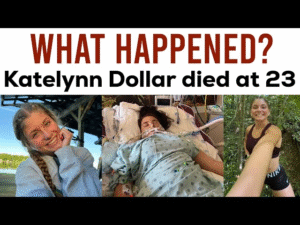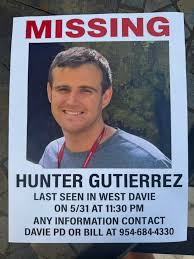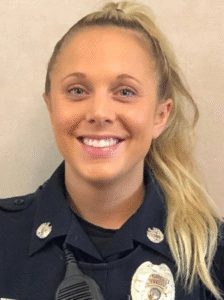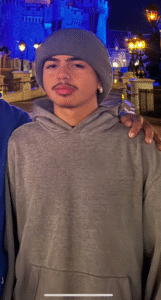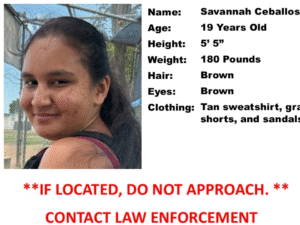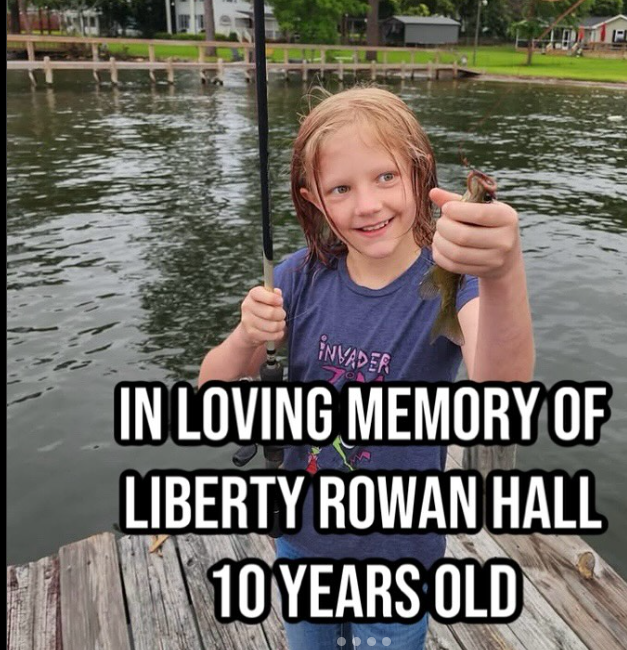
There are some stories that stay with us forever. The story of Liberty Rowan Hall is one of them. It’s the kind of tragedy that grips your heart and won’t let go. Liberty was a young girl, full of light and love, who lost her long, quiet battle with depression. She took her own life—leaving behind not just her grieving family, but a world that is still trying to understand how we failed her.
This article isn’t just about Liberty’s passing. It’s a wake-up call for all of us—to look deeper, ask harder questions, and remember that sometimes, the brightest smiles are hiding the darkest pain.
Liberty Rowan Hall Biography
| Aspect | Details |
|---|---|
| Full Name | Liberty Rowan Hall |
| Age | Teenager (exact age not confirmed) |
| Cause of De@th | Suicide due to prolonged depression |
| Family | Survived by her mother and loved ones |
| Known For | Her courageous fight against depression |
| Legacy | A symbol of mental health awareness |
Who Was Liberty Rowan Hall?
Liberty was more than just another name on a tragic list—she was a beloved daughter, a radiant soul, and someone who touched hearts even through her pain. She was creative, sensitive, and deeply emotional. But behind that light was a darkness that few could see and even fewer could understand.
A Life Too Short, Yet So Deeply Felt
Liberty’s life, though brief, left a lasting impact. Like a shooting star that blazes briefly across the sky, she lit up the lives of those who loved her. She mattered—every breath, every word, every moment. And her story continues to touch lives even in her absence.
The Silent Struggle with Depression
For months, Liberty battled deep, dark depression. It wasn’t obvious. Like many young people, she hid her pain beneath smiles and silence. Her mother fought alongside her—every single day. But depression is a cruel and cunning illness, often whispering lies louder than love can shout.
A Mother’s Love and Pain
Liberty’s mom did everything humanly possible. Locked up all pills, razors, and dangerous items. Stayed by her side. Monitored her with cameras. Slept next to her. Loved her fiercely.
And still… it wasn’t enough. Her mother’s heart-wrenching words speak volumes:
“I beat that baby trying to wake her up… I held her head and lifted it, and her little soulless eyes stared off.”
No parent should ever live this moment.
The Night Everything Changed
On that night, Liberty closed her door—locked it. Something she wasn’t allowed to do. She turned the camera away. She had been planning this. Despite months of fighting, trying, reaching out—this night, her pain became unbearable. It was the end of her internal war.
The Unimaginable Grief
There is no guidebook for this kind of loss. Her mother tried to hold her soul in her arms. She begged the doctors. She screamed for her child to come back. But Liberty was gone.
And now, all her mom has are blood-stained memories and a heart shattered beyond words.
Mental Health and Teens: The Hidden Crisis
Teen depression is not rare. It’s a silent epidemic. Social media, bullying, body image issues, academic stress—it all piles up. Liberty’s story is tragic, but unfortunately, not unique. What makes it stand out is how raw, real, and painful it is.
Why Liberty’s Story Matters
Liberty’s story isn’t just a sad headline. It’s a reflection of what so many families are silently battling. Her story needs to be heard—not just for sympathy—but to spark change.
The Power of Therapy and Support
Liberty had therapy, and it helped. But therapy alone isn’t always enough. We need community, open dialogue, and a culture where mental health is taken as seriously as physical health.
Lessons for Parents and Caregivers
No parent has all the answers. But Liberty’s story reminds us that vigilance, compassion, and constant communication can save lives. Still, sometimes—even that isn’t enough. And that’s not your fault.
Creating Safe Spaces at Home
It’s crucial to make home a safe space—not just physically, but emotionally. Let your child know:
“It’s okay not to be okay.”
“It’s okay to cry, to feel, to talk.”
They need to feel seen and heard—without judgment.
The Danger of Assumptions
Don’t assume your child is fine just because they smile. Don’t assume silence means peace. As Liberty herself once quoted:
“You all assume I’m safe here in my room, unless I try to start again.”
—Chester Bennington
We can’t afford assumptions anymore.
A Plea for Compassion and Understanding
If there’s one thing we can take from this—it’s to be kinder. We don’t know the battles people are fighting. Let’s stop labeling, blaming, and judging. Instead, let’s ask:
“Are you really okay?”
Honoring Liberty’s Memory
Liberty deserves to be remembered—not for how she died, but how she lived. A beautiful, fragile soul who loved and was loved. Let’s honor her by making the world a safer place for others like her.
How We Can Help Each Other Heal
It starts with conversation. With being brave enough to say: “I need help.”
And being kind enough to say: “I’m here for you.”
We can all be part of the healing—one word, one hug, one moment at a time.
Conclusion
Liberty Rowan Hall’s life and story force us to confront what’s often left unspoken. Her pain was invisible to many—but now her voice echoes in the hearts of thousands. Let’s not let her passing be in vain. Let’s talk more. Listen more. Love more.
FAQs
1. Who was Liberty Rowan Hall?
Liberty was a young girl who battled depression and tragically took her own life. Her story has sparked conversations around mental health and suicide awareness.
2. What caused Liberty’s de@th?
Liberty died by suicide after struggling with severe depression for several months.
3. What was her mother’s response?
Her mother shared an emotional and heartbreaking statement expressing her grief, pain, and the measures she took to protect Liberty.
4. How can parents support children with mental health struggles?
Parents can support by staying present, communicating openly, seeking professional help, and creating emotionally safe environments.
5. What can we do to prevent similar tragedies?
Start conversations about mental health, reduce stigma, offer emotional support, and push for better access to therapy and crisis intervention services.
